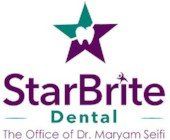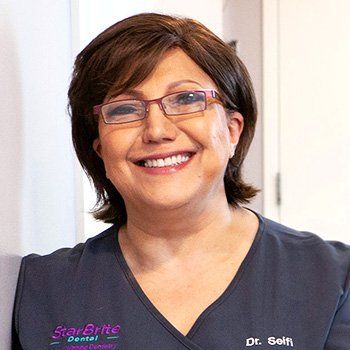Six-Month Checkups: What Are They For and Why Are They Necessary?
Consider the miracle of your teeth. These bone-like structures chew more than a hundred thousand meals and snacks in your lifetime. They experience extreme hot and cold temperatures. They put up with tough steaks, hard pretzels and Brazil nuts. And as long as they get the care they need, they can still be healthy and look great in your seventies.
Note this point very well: They must get the care they need. Any problems with your teeth must be detected and handled as soon as they show up.
When you’re chewing, you are putting something like 150 pounds of pressure per square inch on some of your teeth. Any weakness that is not promptly addressed can cause the entire tooth structure to deteriorate.
You can’t see these weaknesses by looking in a mirror. Some of them are hidden and some take a trained eye to see. Still others take x-rays to detect. The very best way to preserve those beautiful teeth is to schedule regular visits with your dentist.
Additionally, regardless of how well you brush your teeth, it is vital to get them regularly cleaned by a dental hygienist. This is because a certain amount of plaque builds which can only be removed by dental tools.
The solution to maintaining healthy teeth is simple: get six-month checkups to clean your teeth and catch possible problems before they get serious.
What Will Your Dentist’s Office Do at Your Visit?
If you have been through these regular visits, you probably know some of the steps. However, you might not have noticed the details of what was going on.
X-rays are usually the first step at one of these checkups. Different dentists have different requirements for how often x-rays are taken. And some patients – such as children or those with greater risk of dental problems – might need x-rays more frequently. Your dentist will tell you what your ideal frequency is.
After the x-rays, a hygienist will clean your teeth. A dental hygienist is basically an expert at cleaning teeth who works for a dentist. They use professional cleaning tools to provide cleanings you simply can’t do on your own.
On this step, the hygienist clears away the hardened plaque (also called tartar) on your teeth. If you’ve been through cleanings, you will remember how the hygienist goes from tooth to tooth, scraping away plaque adhering to each tooth. She will use a variety of scrapers and a small mirror to see hidden surfaces.
As she does this, she will note any problems she sees, such as gum inflammation or infections.
Her next step will be to polish your teeth with a light abrasive paste to remove stains and further remove plaque. She will normally then floss your teeth to remove any residual polish or bits of loosened plaque left between your teeth.
A hygienist may also measure the depth of pockets around your teeth, meaning she will slip a small measuring tool into the space between your teeth and your gums. If this measurement is too high, you are at greater risk of gum disease and tooth loss.
As she proceeds, a good hygienist will make suggestions on how you can preserve your teeth. She might tell you places you are missing as you brush, or recommend flossing more often. Part of her job is to help educate patients on better hygiene so they can preserve their teeth and, incidentally, save thousands of dollars in dental care.
The Dentist’s Exam Will Follow
When the cleaning is done, the dentist will come in and examine your teeth. However, they are actually looking at far more than your teeth.
They’re looking at your gums, your face, your tongue and your jaw. They may feel the glands under your tongue and jaw. They’re looking for any swellings, signs of infection or even cancer.
This exam gives the dentist an opportunity to catch any problems before they become serious or expensive to fix.
What Happens if You Skip These Visits?
There are two things that can happen if you skip your six-month checkups.
The first is that plaque has a longer time to accumulate. While brushing and flossing regularly largely prevents plaque from accumulating, it’s not possible to eliminate it completely by yourself. The longer plaque accumulates, the more the bacteria inside plaque can damage your teeth. This increases your likelihood for cavities and gum disease.
The other occurrence that’s possible is that any problems that do crop up have a longer time to develop. Cavities, infections, fractures – problems that might be fairly minor can become serious if you do not have your teeth checked regularly.
Six-month checkups are quite economical. The fact is that the dental work that you could need if you neglect these visits can be quite serious. While it seems someone might save money by skipping these appointments, in truth this could create a large dental bill to fix dental problems later on.
Most expensive dental work is avoidable just by keeping a regular schedule of these visits with your dentist. Unless you have gum disease, a visit every six months is usually sufficient. Your dentist can make this recommendation.
At StarBrite Dental , we specialize in high-quality care for the long term. Our philosophy is that we want to be a partner in your health for life. We look forward to meeting you.
View the previous post: What Causes Tooth Decay and How Do I Fix It?
View the next post: A Healthy Mouth – Importance of Oral Hygiene →
Return to main page for: Dentist Rockville MD
301-888-5785
301-889-9291 | 301-889-8366 | 301-756-5406
Our website is presented strictly for informational purposes. Nothing here is intended to be a substitute for professional medical advice or for the diagnosis or treatment of a medical condition.
If you have questions about your health you should seek the advice of a qualified health professional. Do not delay or disregard professional advice because of something you may read here.
All Rights Reserved | StarBrite Dental, the Office of Dr. Maryam Seifi
Website designed and maintained by Xpress, INC


